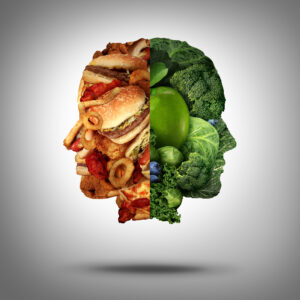Here Are 7 Ways To Know For Sure (And What You Can Do To Help)
1. Bowel Movements
The frequency and formation of your child’s stool can say a lot about their gut health. They should be having a bowel movement once a day that is solid but not too hard to pass. If they often have diarrhea or become constipated, this is a sign that there may be an imbalance in the gut.
2. Gas
Passing gas is normal, but flatulence with an unbearably foul smell indicates that something in the GI tract is off. If your child has frequent, stinky gas, it’s time to further investigate what is going on in the gut as it could be a sign of an unhealthy ratio of good vs bad bacteria in the gut.
3. Belly
Your child’s belly should be relatively flat; a belly that is distended or protruding is a tell-tale symptom of digestive distress.
Sometimes kids have ‘jelly bellies’ which may indicate excess insulin and potential insulin resistance as too much insulin can cause us to store fat in our bellies. But bellies can also be bloated, distended and hard to the touch which warrants further investigation.
4. Energy Level
Lethargy and frequent sleepiness is another sign of poor gut health.
Low energy is often caused by inefficient digestion and absorption of nutrients, which can cause a feeling of sluggishness. Though it’s true that some children with autism have an abundance of energy, others are often tired and inactive.
When the gut is not healthy, it impacts our ability to absorb nutrients from food which has an effect on the body's ability to produce energy.
5. Immune Health
Because digestive health is directly tied to the immune system (making up as much as 70% of it), an imbalanced gut means an individual can become sick more frequently than the average person. Too few of the good bacteria mean you’re not as able to fight off viruses and infections, resulting in becoming ill more often.
6. Skin
Skin is an organ that we may not immediately think of when it comes to gut health, but as it is the largest organ in the body, it can give us surprising insight into what’s happening with our overall health. Rashes and acne have been linked to bloating and constipation tied to poor gut health. So has eczema and psoriasis.
The bottom line?
Skin problems and/or breakouts may be an indication of gastrointestinal distress.
7. Behavior & Mood
Parents of children with autism are unfortunately usually very experienced in behavioral and mood problems in their sons and daughters, and the gut can play a big part in that.
We’ve written before about Harvard and Johns Hopkins discovering the connection between the gut and the brain. Our gut is referred to as our “second brain” and both have the ability to influence the health and function of each other.
To put it simply, the “good” bacteria can help neurotransmitters like serotonin thrive, which helps us feel calm. They can also help manage levels of cortisol, which keep stress levels under control.
If your child shows symptoms of an unhealthy gut, take heart, as there are effective ways to heal and restore the balance of good bacteria. The best ways to do this are through clean, organic foods (pesticides irritate the gut) and using probiotic supplements. We have explored these issues in-depth and will continue to do so, so keep reading for more on these topics.
Simple Ways to Help Your Kid(s) Gut Health
If your gut has fallen out of balance, there's no need to resign yourself to not feeling on top of your game. These simple measures support a healthy microbiome from the inside out:
- Replace junk food with healthier food choices: Eating a whole food diet (organic, if possible!) full of nutrient-rich plant-based foods will keep your entire system going strong, but your gut microbes will be especially happy. This is because many fruits, vegetables, and whole grains—like fruits and vegetables—are excellent sources of prebiotics, fibers that support the growth of friendly flora.

Avoid GMOs, refined sugars, processed foods, artificial sweeteners, and pesticides, all of which can destroy beneficial gut bacteria.7
- Reduce Sugar: Sugar is the enemy because sugar feeds the unfriendly bacteria and microbes in our gut. Yeast is commonly found in the digestive tract which is okay when it’s in balance but too much sugar can feed yeast and enable it to overgrow.

When unfriendly bacteria and yeast overgrow, they can be very damaging to the gut lining and produce toxins inside the body. These toxins can put pressure on the brain and lead to unhealthy levels of inflammation.
- Avoid unnecessary medications: Antibiotics can be lifesaving when fighting severe infections, but unfortunately, they kill off the good bacteria along with the bad. Other medications, including NSAIDs, laxatives like MiraLax, and antacids can also harm those probiotics. If you need medicine to get and stay well, by all means, take it, but whenever feasible look for natural alternatives.
- Supplement with a daily probiotic: A high-quality daily probiotic supports glowing health by supplying your gut with friendly bacteria and help your gut get the fuel it needs to thrive.

Now,
One of the easiest and most effective ways to repair the gut and fight inflammation is to simply take a probiotic on a daily basis.
Unfortunately, not all probiotics are created equal.
Here Are The Top 4 Things to Look for When Shopping for Probiotics…
1. Strain Diversity and Strength
- Most probiotics contain 3 strains and 5 billion CFU’s (Colony-Forming Units).
- Children with an unhealthy need a stronger and more diverse probiotic. Look for one with at least 10 strains and 10 billion CFU’s.
2. Look for a Probiotic that Contains a Strain known as “L Reuteri”.
- This is a vital ingredient for children with autism. In a recent study, researchers found that by feeding the probiotic Lactobacillus Reuteri to mice with autism-like behaviors, improved their sociability while increasing the number of oxytocin-producing neurons (a hormone associated with social behavior) in their brains.
- It also improved signs of brain plasticity – the brain’s ability to form new connections that foster learning.
3. Easy to Consume
- Most kids struggle to take high-quality probiotics because they mostly come in giant-sized pills or nasty powders. And unfortunately, the “children’s probiotics” are typically glorified gummy-bears that don’t work. So, we recommend finding a high quality probiotic with a flavorless powder.
4. Buy From Companies Who Believe in Their Products Enough To Offer At Least A 90-Day Money-Back Guarantee
- The companies who genuinely believe in the quality of their product and its effectiveness are not afraid to stand behind a powerful guarantee.
Where Would I Begin to Find Quality Probiotics For Kids?
Probiotics are sold everywhere.
But the ones sold in grocery stores and GNC’s generally lack the quality ingredients you’re looking for, and quite frankly, they don’t work very well. Especially for kids.
With that said, if you have a high-end Vitamin Boutique in your area – they may have something worth looking into on their shelves.
Or,
You can always look online.
My personal favorite is All-Star Nutrition's Bio-Heal.
I’m admittedly biased when I say it’s the best probiotic for kids on the market.
But with over 500 5-star reviews, I think it’s safe to say a lot of people agree with me.
Click Here to Learn More About The 5-Star Probiotic For Kids
The Bottom Line
Gut health is the foundation of overall health and we have a tremendous opportunity to support long-term health in our children by supporting gut health through supplements and healthy food choices.
And by fortifying the ranks of your gut's ‘good guys' encourages a lifetime of vibrant health for mind, body, and spirit. After all, a balanced, nourished gut can help your child reach their full potential so they can enjoy their healthiest days yet!
*This website is provided for informational purposes only and is not intended as a substitute for the advice provided by a healthcare professional.
References
- Discover What the Medical Community Is Hiding From You
- A Parents Guide On How to Tell the Difference Between a Meltdown and a Tantrum
- Acne vulgaris, probiotics, and the gut-brain-skin axis. Europe PMC
- The Connection Between the Gut & The Brain
- Getting to the Root of Behavior Patterns
- Repair with “Real” Foods & Powerful Supplements
- Does Your Child Have a Healthy Gut? 7 Key Signs to Help You Find Out

















